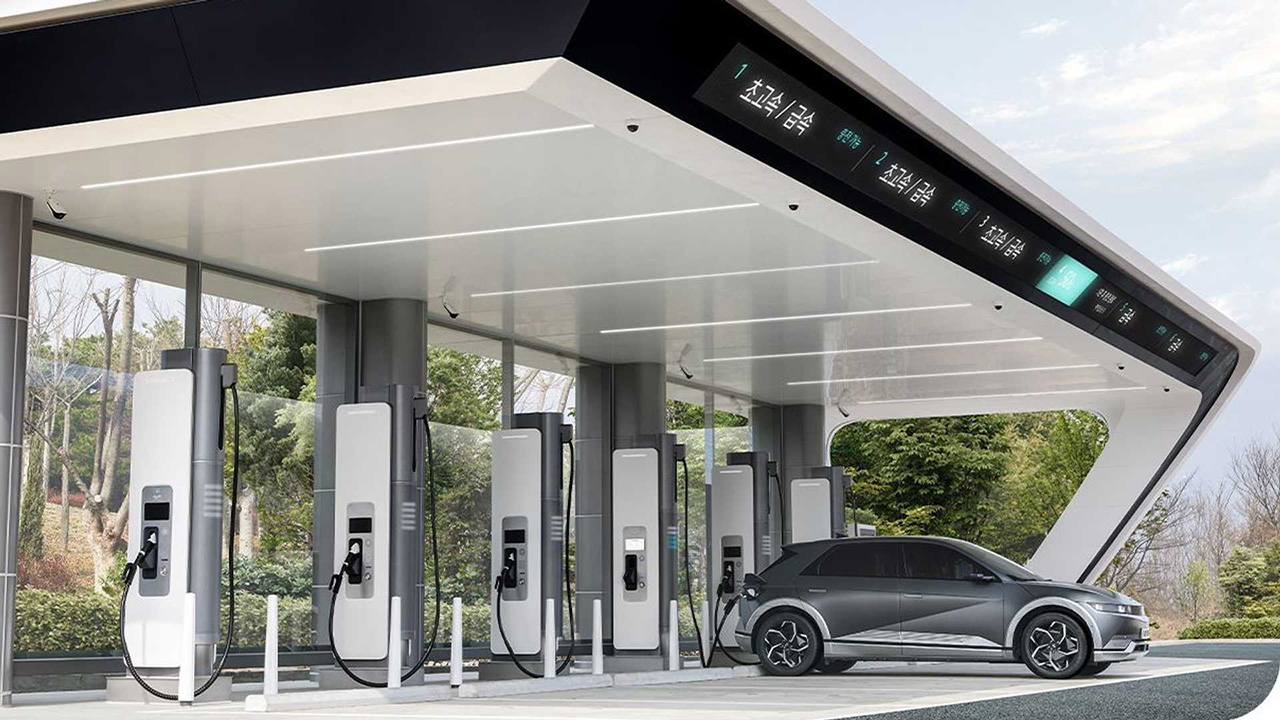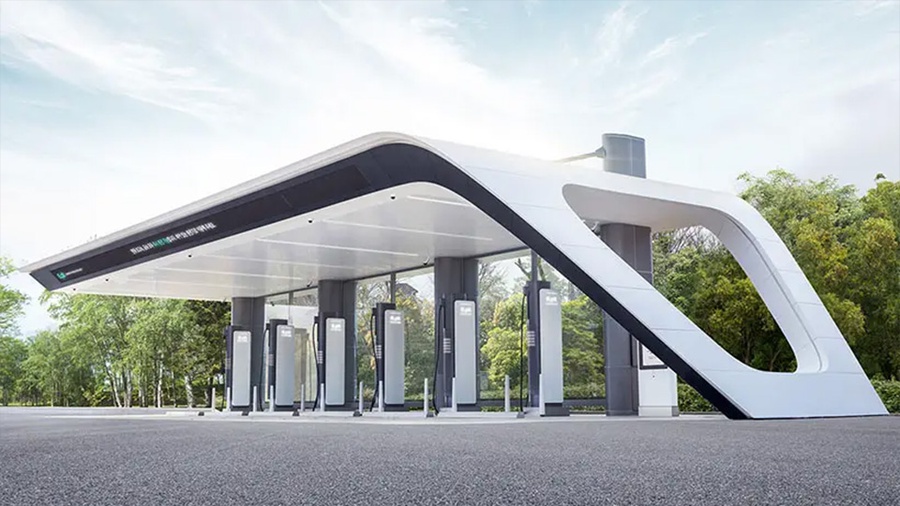As per a report by KED Global, Hyundai Kefico Corp., a subsidiary of the group primarily focused on engine and transmission components, is nearing the launch of its own high-powered chargers with an output capacity of up to 350 kilowatts.
Hyundai Kefico disclosed plans for EV charger development in October 2022 under the brand name Blue Plug. The first units are anticipated to be released in South Korea later this year, subject to obtaining the necessary certifications.
The primary objective of manufacturing chargers in-house is to deploy them within Hyundai Motor Group's E-pit fast charging network in South Korea.
Initiated in April 2021, the E-pit network started with 12 stations and 72 high-powered, 800 V chargers. Since its launch, the network has grown to 36 stations, a number still considered insufficient when compared to Tesla’s Supercharging network, which expanded from 33 to 106 stations in the same time frame.
KED Global reports that the slow expansion of the E-pit network prompted Hyundai's decision to produce its own chargers. The sluggish rollout was apparently due to the high costs of acquiring chargers and stations from external vendors.
The E-pit network is positioned as a premium service, featuring four to six 350-kilowatt chargers under a luxurious canopy. The article notes that the use of high-end materials and stricter quality standards have driven the cost of individual chargers above the industry average, estimated at $113,000 (150 million won).
In summary, Hyundai Motor Group's move to produce DC fast chargers internally aims to cut expenses and scale more efficiently. It remains uncertain whether this initiative will be limited to the South Korean market or expand internationally.
Tesla's longstanding practice of manufacturing its own charging equipment could suggest that Hyundai's strategy will yield long-term benefits, given the company's existing expertise in power electronics.
This development may pose challenges for existing E-pit suppliers like SK Signet (a division of SK Group) and EVSIS Co. (a Lotte Group company). The article also mentions that Daeyoung Chaevi, an operator of E-pit systems and chargers, recently terminated its one-year collaboration with Hyundai Motor Group, hinting at a larger restructuring as the electric vehicle market evolves.
Source: KED Global


